Astronomy
-
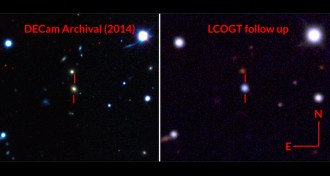 Astronomy
AstronomyReturn of superstar supernova raises doubt about its identity
The brightest supernova on record is back for round two, and might not be a supernova after all.
-
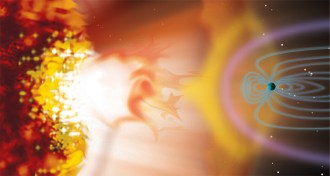 Astronomy
AstronomyYoung sun’s super solar flares helped set early Earth up for life
Super solar flares may have provided early Earth with planet-warming and life-building molecules.
-
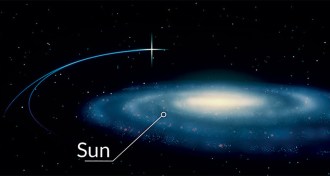 Astronomy
AstronomyFast-moving star duo is heading out of the Milky Way
A pair of hyperfast stars hurtling through a remote region of the Milky Way might have been orphaned after a long-ago galactic collision, a new study suggests.
-
 Astronomy
AstronomyStephen Hawking finds the inner genius in ordinary people
Ordinary people wrestle with big questions in science and philosophy in Genius, a new television series hosted by Stephen Hawking.
-
 Astronomy
AstronomyEarth has nothing on this exoplanet’s lightning storms
Lightning storms far more intense than any on Earth might explain radio waves that once came from a planet 124 light-years away.
-
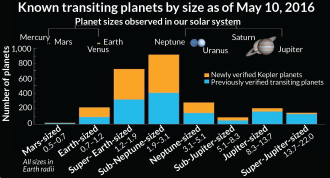 Astronomy
AstronomyKepler telescope doubles its count of known exoplanets
NASA’s Kepler space telescope adds 1,284 planets to the roster of worlds known to orbit other stars in our galaxy.
-
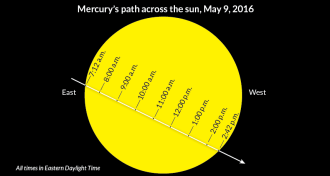 Astronomy
AstronomyMercury is about to make a rare journey across the face of the sun
On May 9, Mercury will make a rare appearance as a small dot passing across the face of the sun.
-
 Astronomy
AstronomyNearby exoplanet trio new target in search for life
Three nearby exoplanets might be good spots to go looking for signs of alien life.
-
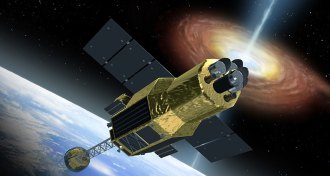 Astronomy
AstronomyJapan’s latest X-ray telescope is officially dead
The Japanese space agency has officially declared its latest X-ray telescope a loss.
-
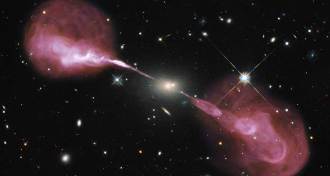 Astronomy
AstronomyGas blasts from black holes show surprising alignment
Unexpected alignment of galactic gas geysers might offer new insight into how galaxies and black holes arise from the cosmic web.
-
 Astronomy
AstronomyHubble telescope snaps stunning pic for its 26th birthday
For its 26th anniversary, the Hubble Space Telescope snapped a picture of star blowing bubbles in space.
-
 Space
SpaceTrying to find ET and our place in the universe
Editor in Chief discusses the search for life beyond Earth.
By Eva Emerson